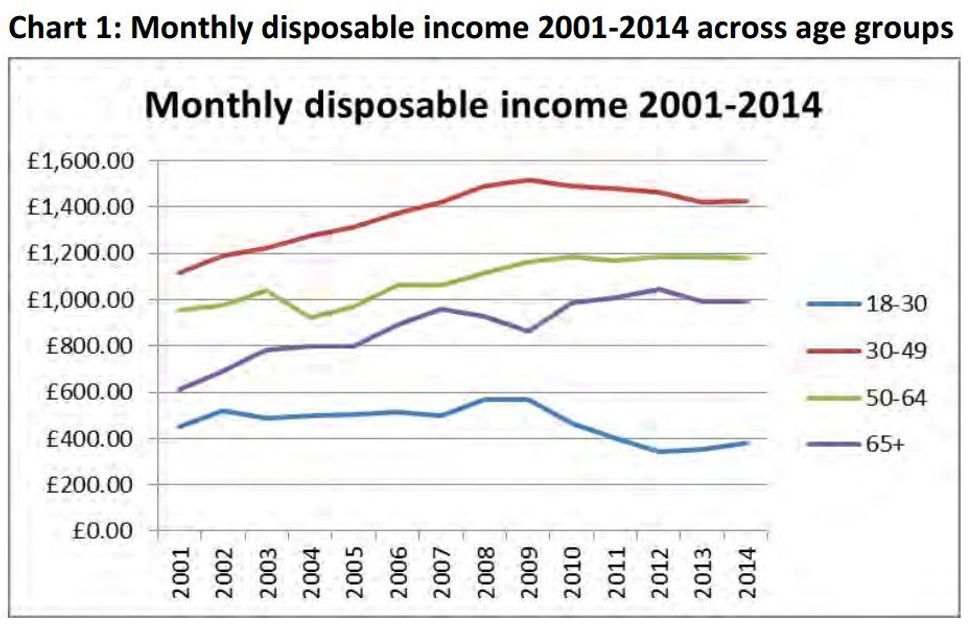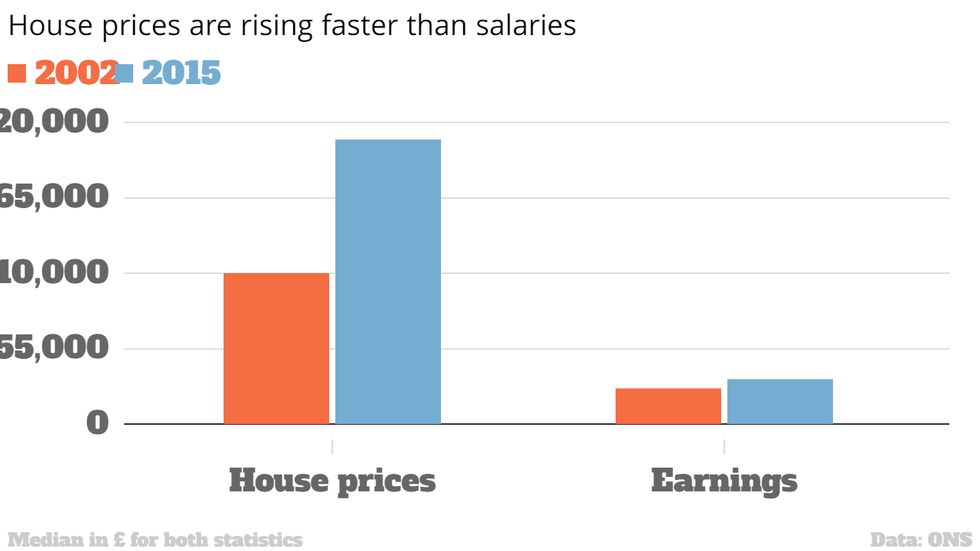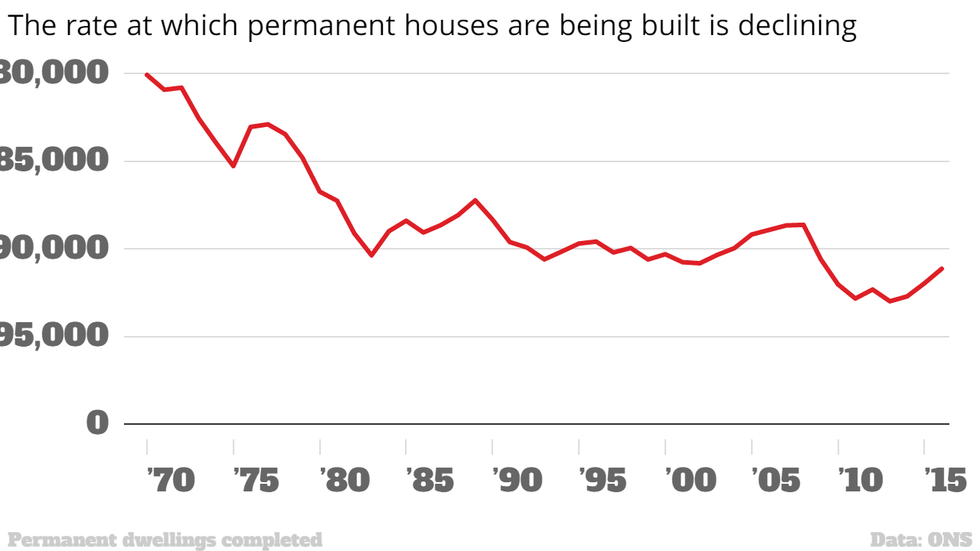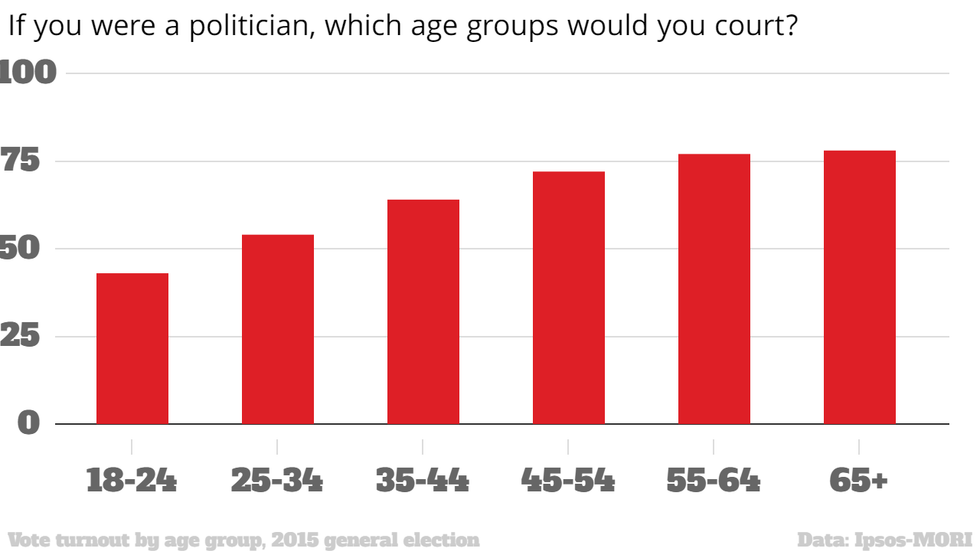News
Louis Dor
Nov 29, 2016
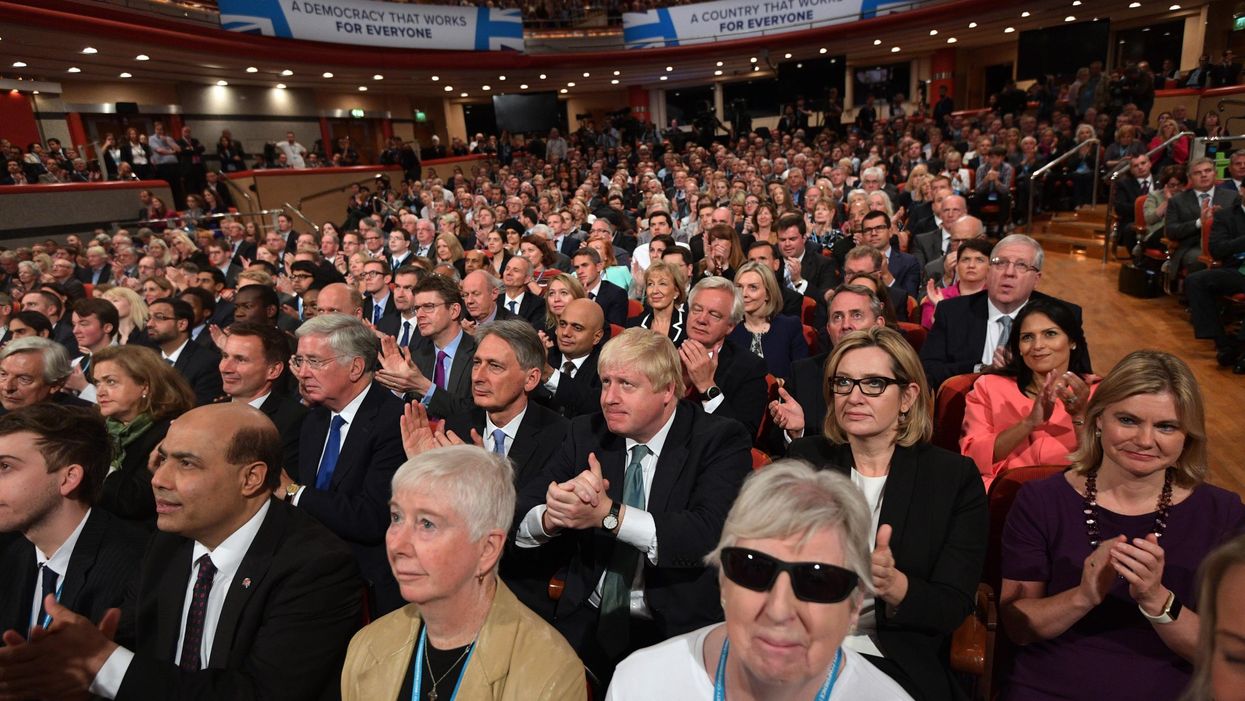
Picture:
Getty images
We're digital natives in an age of technological revolution, many of us are likely to live past 100 years old, and we likely enjoy more civil liberties than previous generations.
So, many people ask, what do today's younger generation have to complain about?
Quite a lot, actually.
As a demographic, we'll find it harder to obtain and keep a job, save money and buy a home than previous generations - and the trends only seem to be going one way.
Today's younger generation are the best-educated generation ever, globally speaking.
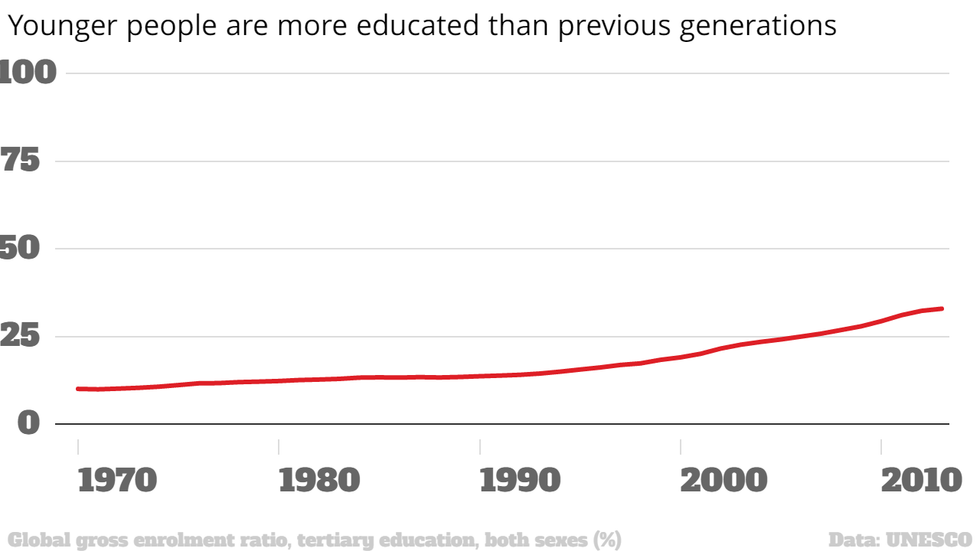
Which is a fantastic thing, don't get us wrong.
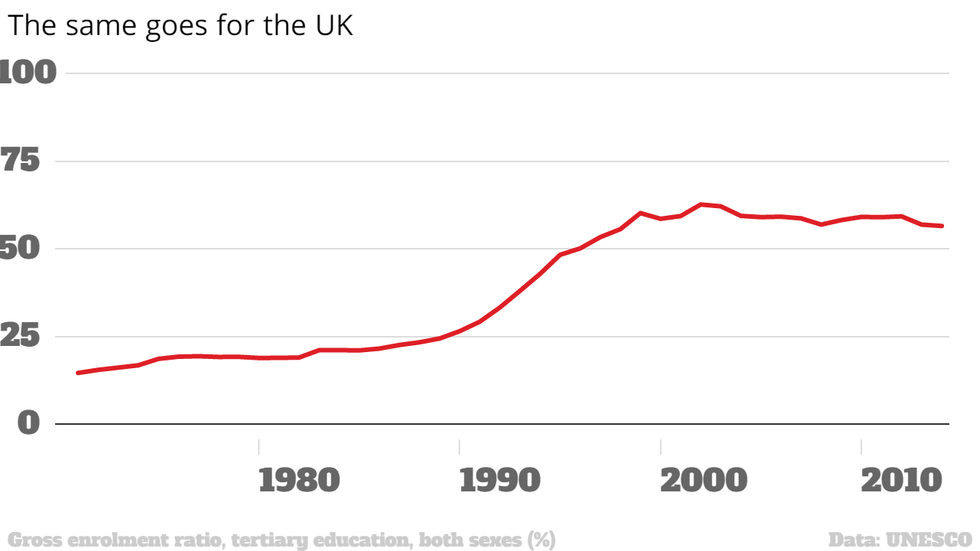
However, this hasn't translated into better employment rates for younger people in terms of full-time jobs, as more are sudying and older age groups are working later into their years. In addition high paying jobs have increased competition.
Since the recession in the UK, younger generations took the annual pay cut for previous generations:
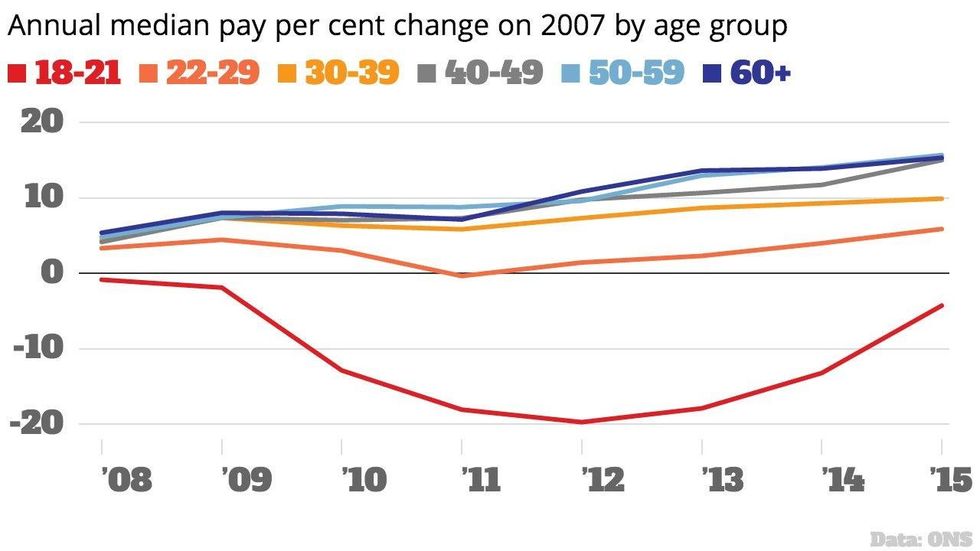
We also look forward to competing with robots for jobs. An Oxford University study in 2015 found that 35 per cent of current jobs in the UK are at high risk of automation over the next 20 years.
We will also compete with far more graduates than our parents.
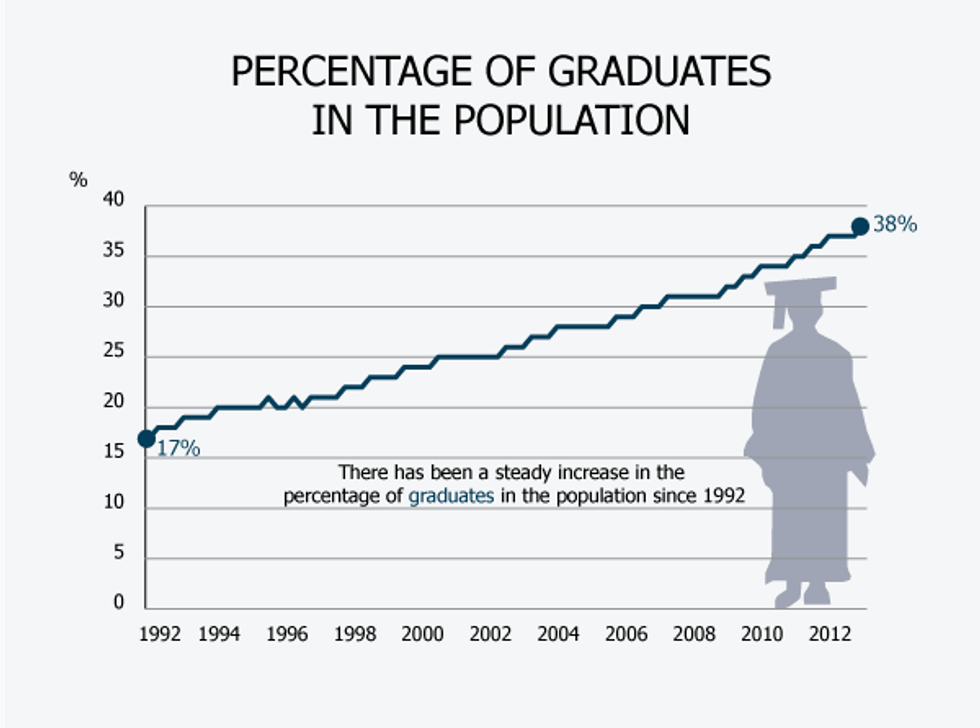
Our disposable income to save or put towards a house also took a hit after the recession, and an HSBC report last year found that we were more likely than any other age group to want to save.
The report read:
18-30s are more willing than any other age group to give up nights out in order to reach their savings goal, and would give these up over their gym membership or online subscription services like Netflix or Spotify.
A survey of the nation’s saving habits by HSBC found that 18-30s’ top reason to save was a house deposit (35 per cent), followed by a holiday (21 per cent), with only 7 per cent saying their top priority was to save for a wedding.
It's all in vain: we're less likely to own a home than our parents.
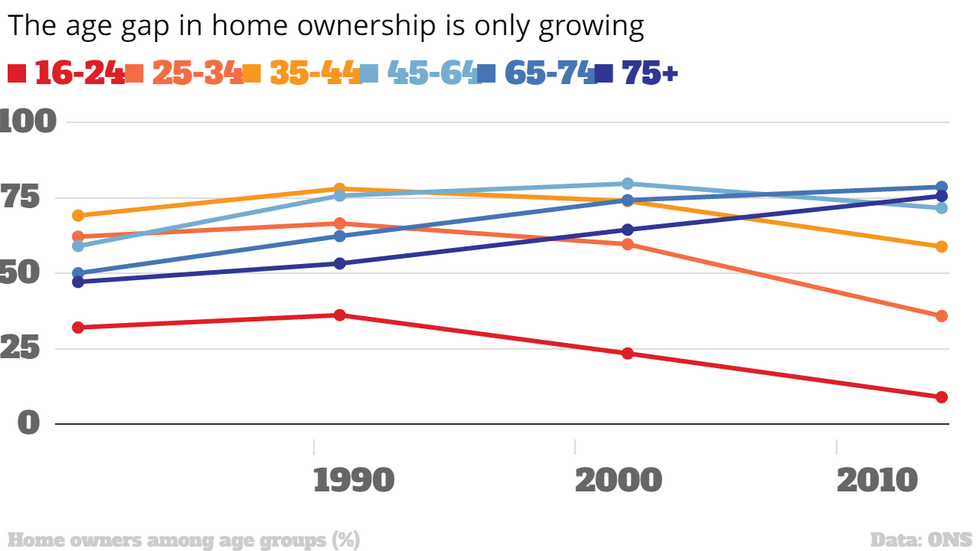
Mostly because house prices are outpacing earnings (especially for young people) nationally.
While housebuidling is down:
Why is this happening? Firstly, there are more people than ever. Secondly, lawmakers are less inclined to represent young people. Because we don't vote as much as old people.
Politicians don't control economic factors, but if they thought young people could get them elected, they would probably move real earnings, jobs and home ownership prospects up the agenda.
More: This Chrome extension replaces 'millennials' with 'snake people'
Top 100
The Conversation (0)
